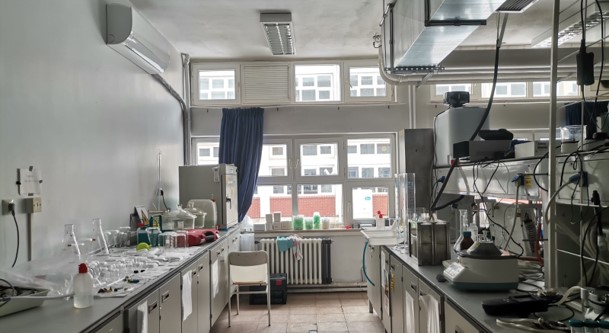Laboratory Facilities
The Department of Environmental Engineering offers the following educational and research opportunities. Students can access these opportunities for learning and research activities.
Learning Laboratories
- Unit Operations and Processes Laboratory
- Environmental Chemistry Laboratory
- Microbiology Laboratory
Research Laboratories
- Air Pollution Research Laboratory (2 laboratories)
- Solid Waste Research Laboratory (2 laboratories)
- Advanced Treatment Laboratory (4 laboratories)
- Water Quality Laboratory
Unit Operations and Processes Laboratory
The Unit Operations and Processes Laboratory has the facilities,materials and equipments to perform the following experiments and analyzes.
- Coagulation and Floccuation, Jar test
- I., II., III. and IV. type sedimentation analysis
- Batch sedimentation column test, determination of sedimentation rate
- Sedimentation tank for primary clarifier design data acquisition (column test)
- Sedimentation tank model for data evaluation
- Single and multiple medium filters
- Determination of size distribution, particle density and permeability of the filter bed material
- Deep bed filtration
- Filterability determination and comparison
- Adsorption test for Freundlich and Langmuir isotherms
- Determination of leap volume by column experiment and design of an adsorption column
- Determination of leap volume by column experiment
- Ion exchange, softening and rejeneration
- Aerated lagoons
- Aeration Tank
- Aerobic digester
- Anaerobic digester
- Electrodialysis
- Suspended solid and oil & grease removal by flotation
- Permeability experiments
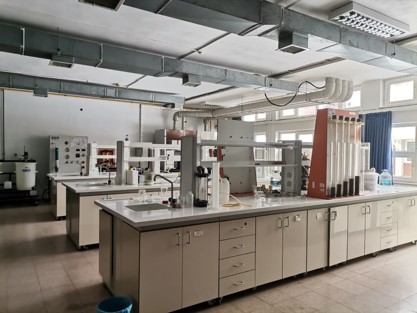
Environmental Chemistry Laboratory
Environmental Chemistry Laboratory is designed for the following experiments and analyzes.
- Sample collection principals of water, wastewater and soil
- Gravimetric analysis in natural waters and wastewaters
- Standardization of solutions used in the laboratory with primary standards
- Determination of acidity in water
- Determination of alkalinity in water
- Determination of hardness in water
- Turbidimetric analysis
- Determination of total Khejdahl nitrogen
- Determination of oil & grease
- Heavy metal analysis in solid samples
- Measurement of dissolved oxygen (turbidimetric and potentiometric)
- Biochemical oxygen demand analysis
- Chemical oxygen demand analysis
- All experiments related to water quality determination
- Determination of boron
- Detemination of phosphorus
- Determination of conductivity
- Determination of chlorine
- Determimation of chloride
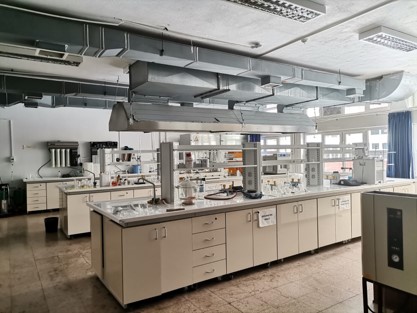
Microbiology Laboratory
The Microbiology Laboratory includes facilities, tools and equipment to perform the following experiments and analyzes.
- Sterilization and disinfection
- Preparation of medium
- Simple and negative staining
- Gram staining
- Movement in bacteries
- Determination of live microorganism
- Methods of obtaining pure culture and isolation of pure culture
- Analysis of water
- Analysis of fungus and maya
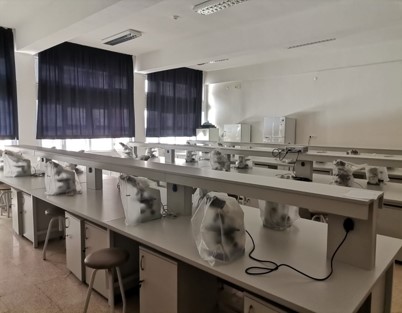
Air Pollution Research Laboratory
Air Pollution Laboratory is designed to implement the following studies.
- Measurement and monitoring studies of various air pollutant components
- Studies on the development and validation of new passive samplers
- Investigation of the effects of air pollutants on plants and fumigation room studies
- Determination of pollutant source
- Air pollution modelling studies
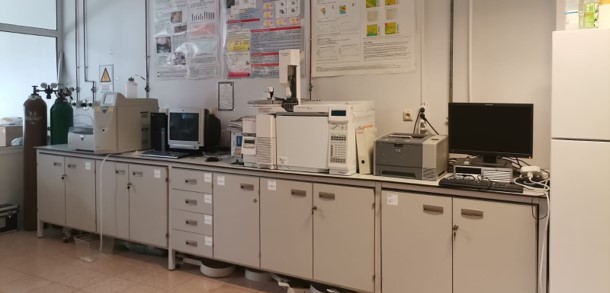
Solid Waste Research Laboratory
Solid Waste Laboratory is designed for the following studies.
- Incineration experiments of domestic and medical wastes
- Determination of the components of solid wastes
- Leachate and soil analysis from landfills
- Determination of organic components in leachate and soil samples by solid phase extraction and solid phase microextraction method
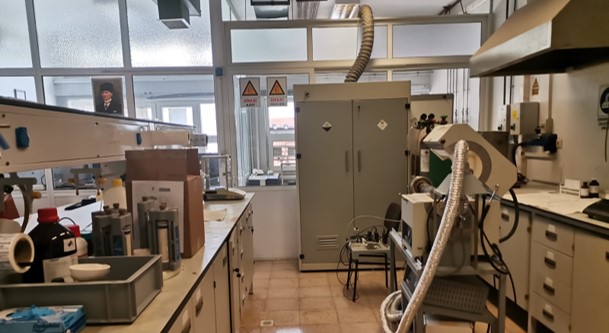
Advanced Treatment Laboratory
In this laboratory, water and wastewater treatment, removal of pollutant gas components and disinfection are carried out by electrochemical methods. In addition, advanced oxidation methods such as ultrasound and Fenton's agent are applied to environmental engineering.
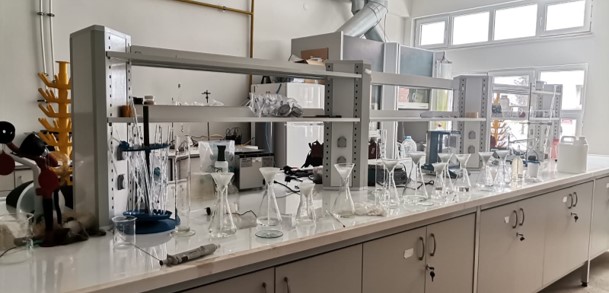
Water Quality Laboratory
The Water Quality Laboratory is designed to monitor natural waters such as rivers. Flow measurement equipment, sampling instruments (manual and automatic) are available. All experiments can be carried out with additional assistance from other laboratories in the department.
